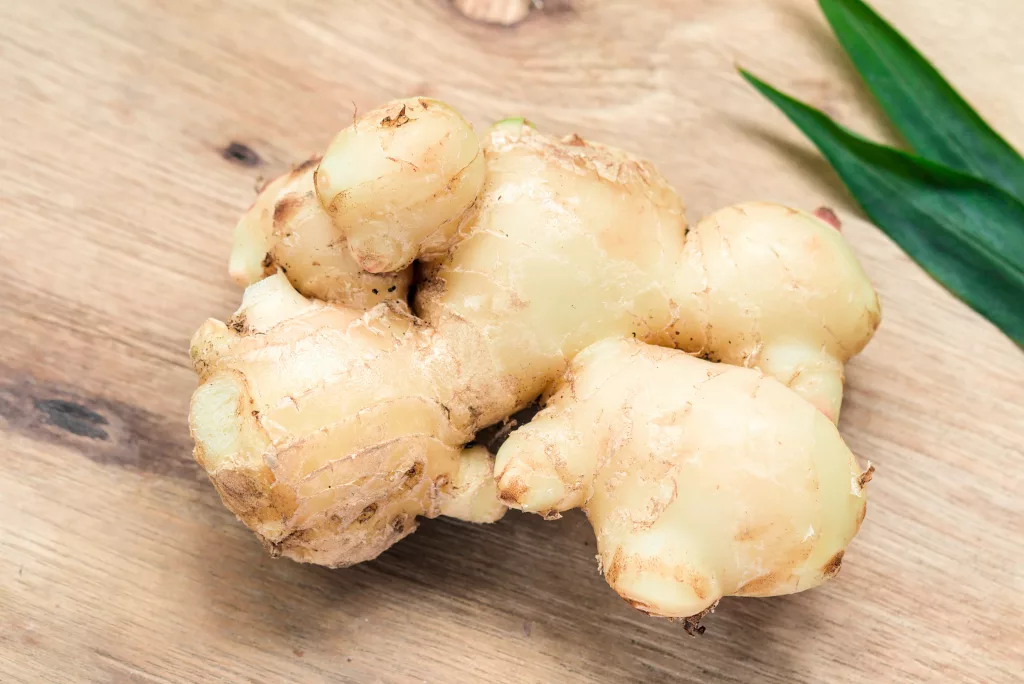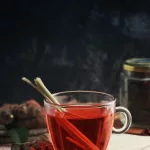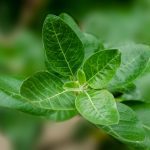
We’ve collected 6 herbs that effectively remove mucus from the lungs. Find out more about the top 6 herbs by reading the article.
Due to its viscous nature, mucus has the ability to bind particles such as dust, allergens, and viruses. In a healthy individual, mucus is watery and barely perceptible. Mucus can thicken and become more noticeable when someone is sick or when they are exposed to a large number of particles.
Mucus is produced by the mucous membranes to help keep the respiratory system healthy and protected. These membranes cover the interior of your mouth, nose, throat, sinuses, and lungs. Although mucus is a necessary component of the respiratory system, it can be thinned or eliminated if its presence causes discomfort.
Mucus can be effectively managed in a number of ways, including by humidifying the surrounding air, drinking plenty of fluids, not suppressing cough, spitting out excess mucus, gargling with salt water, and using the appropriate medications. However, some mucus-clearing herbal remedies can be more helpful in providing relief and making breathing easier. The best part is that several natural herbs have powerful therapeutic properties and are thus beneficial for the lungs and respiratory system.
Table of Contents
Remove Mucus From The Lungs With These 6 Herbs
1. Licorice Root
The medicinal use of licorice root, which is derived from the base of the licorice plant (Glycyrrhiza glabra), dates back to ancient times and is regarded as one of the world’s most ancient herbal remedies. Licorice root, which originates in Western Asia and Southern Europe, has been used medicinally and as a flavoring agent for sweets, beverages, and medicines for centuries. Both licorice root extract and tea have anti-inflammatory and antimicrobial properties, which may help with respiratory issues.
2. Ginger

Aside from its medicinal uses, ginger has been used for thousands of years to give food a more robust, savory flavor and a subtle but welcome kick of heat. Ginger, a member of the Zingiberaceae family of plants that is native to Asia, is consumed either as a root or a stem.
Nasal congestion and certain allergies may find relief from ginger. Because of its antibacterial and antiviral properties, this herb can help relieve chest congestion by preventing the accumulation of mucus and hastening its expulsion.
3. Osha Root
Osha, or Ligusticum porteri, is an annual plant related to parsley and carrots. In certain regions of the Rocky Mountains and Mexico, you can frequently find it growing along the edges of forests. The root of this herb has been used for centuries as a remedy for respiratory infections like flu, bronchitis, colds, and coughs. It’s also good for soothing stomach problems, respiratory issues, muscle pain, and a sore throat.
4. Ginseng
For hundreds of years, people have relied on ginseng as a part of traditional Chinese medicine. American ginseng (Panax quinquefolius) and Asian ginseng (Panax ginseng) are two of the most well-known types. In addition to helping your lungs, this is good for just about every other part of your body as well. By reducing oxidative stress and boosting energy production in cells, ginseng may also aid in the fight against fatigue and enhancement of physical performance.

5. Eucalyptus
The evergreen eucalyptus tree is prized for its curative qualities. Although they are native to Australia, eucalyptus trees are now cultivated and used in many different countries for their healing properties. Eucalyptus essential oil, made from the tree’s leaves after distillation and dilution, is used to alleviate a wide range of symptoms, including those associated with the respiratory system: congestion, fever, and sore throat. Cineole, found in eucalyptus, is the active ingredient that acts as an expectorant. This means it can help calm a hacking cough and facilitate the drainage of mucus.
6. Elderberry
The elderberry is a flowering shrub that is endemic to both Europe and North America. Elderberry has been used historically for a wide variety of purposes, including medicinal ones. It was widely believed to increase life expectancy in medieval Europe. Elderberry is also well-known for the antibacterial, antifungal, and antimicrobial properties that it possesses. That’s why it’s so effective at calming cold and flu symptoms like a sore throat, a stuffy nose, and a cough.
Remember that mucus is constantly being produced by the body. In most cases, it is not necessary to be concerned about occasional production of excessive or thick mucus. During the night, it may have accumulated and dried, making itself noticeable in the morning.
A buildup of mucus is often the result of the body’s defenses trying to ward off a cold, allergies, or something more serious. Many herbs, despite the lack of a substantial body of research on their efficacy, are generally safe for most people to use. Please remember that the content of this article is strictly for educational purposes. Please consult your physician if the production of irritating mucus becomes chronic.
Source: Healthline
Did you find this helpful? Let us know in the comments.
You can also visit our Facebook and YouTube pages to know more about plants and their health benefits.
You might also like:
- 7 Powerful Benefits Of Ginger Tea
- 11 Amazing Health Benefits Of Mustard
- The Interesting Health Benefits of Crimson Ipomoea
- What You Don’t Know About Queen Carpe Myrtle
- Swamp Cabbage: Best Laxative And Antidote For Poisoning
Disclaimer: The following information is provided solely for informational purposes and should not be considered professional advice or a substitute for professional consultation. While every effort has been made to ensure the accuracy and reliability of the information presented, we make no representations or warranties of any kind, express or implied, regarding the completeness, accuracy, reliability, suitability, or availability of the information provided. Any reliance you place on such details is strictly at your own risk.








